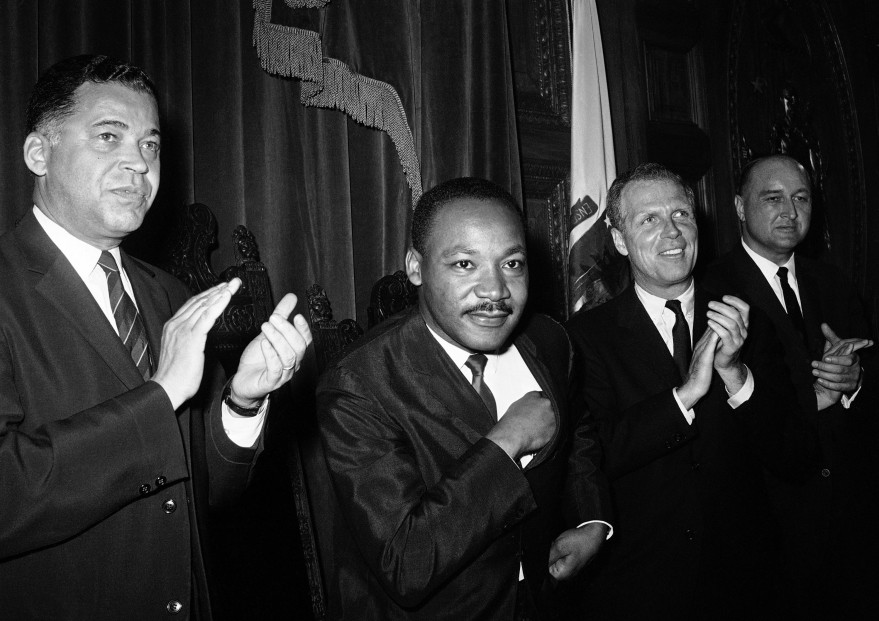Press
In the Boston Herald: Martin Luther King Jr.’s legacy lives on
04.05.2019

Dr. Martin Luther King Jr., as he sits down following his speech to the joint session of the Massachusetts Legislature in Boston, April 22, 1965. Applauding at left is Massachusetts Attorney Gen. Edward W. Brooke. King will lead a civil rights march to Boston Common. Others are unidentified. (AP Photo)
Here in Boston, two of the nation’s oldest organizations continue to build upon his legacy. The Urban League of Eastern Massachusetts turns 100 this year and continues to work for economic justice today, against the backdrop of persistent income inequality.
The Boston NAACP, the nation’s premier civil rights organization, is over 100 years old and leads the charge tackling a range of issues, using successful lawsuits to even the playing field in education, voting rights, redistricting, prison reform and all manner of inequality writ large.
Next year, Boston will host the NAACP’s national convention. It will be important for the city to demonstrate the progress that Boston, Dr. King’s self-proclaimed second home, has made on the many issues he cared about. I think most would agree that the image presented of Boston must be more than just a public relations opportunity. We have a lot to be proud of, and the history and achievements of Boston’s black community have made important contributions to the nation. But like the rest of the country, we remain a work in progress on achieving greater equality of opportunity.
On April 10, more than 200 are expected to attend the 14th anniversary of the Cape Verdean-Jewish seder (capeverdeanjewishseder.com) at Hibernian Hall. Seders that reach out to include other faiths and nationalities always remind me of the many important contributions made by the Jewish community in support of the civil rights movement. They were foot soldiers whether marching beside Dr. King, wielding influence, contributing funds to the effort or encouraging their young people to actively participate on the Freedom Rides to register black voters, walk picket lines and speak out against racism.
…
Read the entire article as it originally appeared in the Boston Herald here.